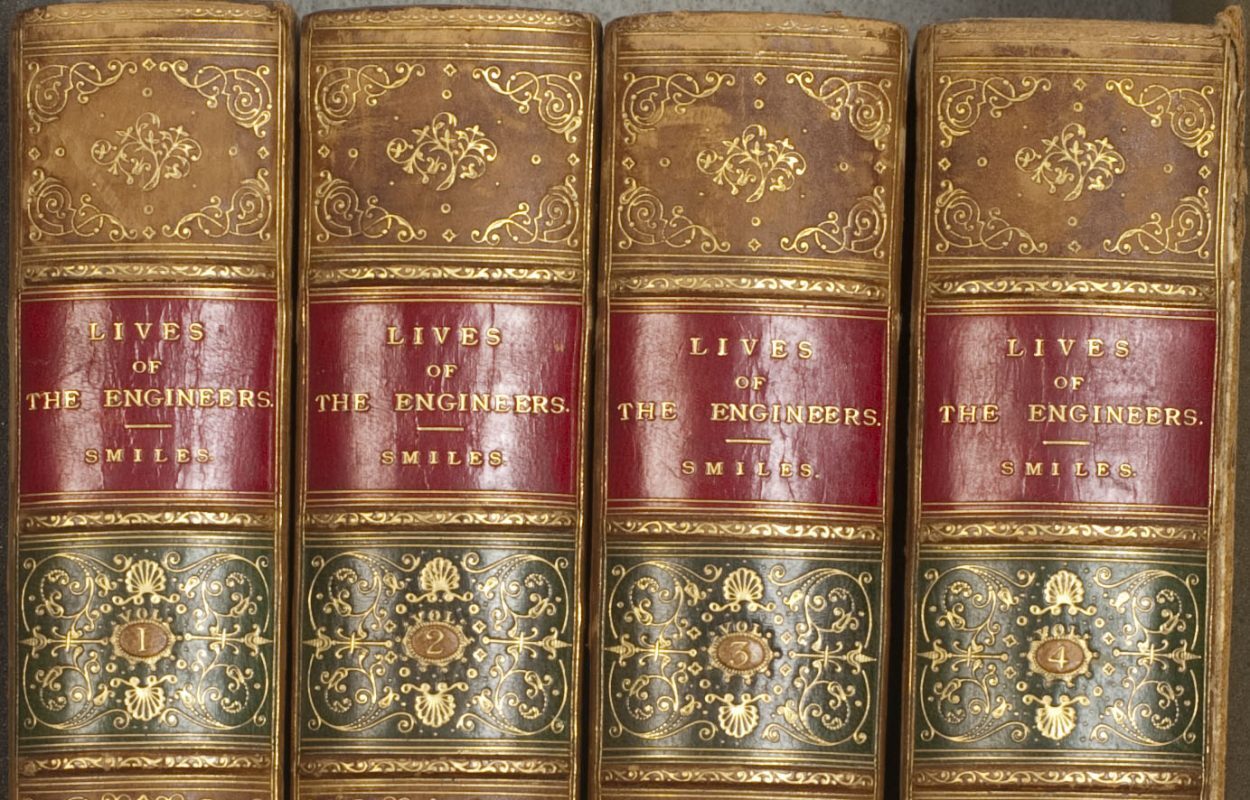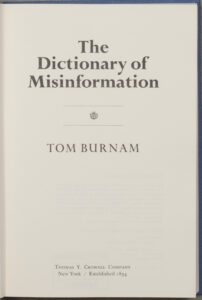Science uncovers truths by testing theories or predictions in trials that can be replicated, and at MIT, science is king. But in the wider world, misinformation runs rampant.
Familiar phrases are often actually misquotes that have been repeated so often that the authentic, original wording sounds strange and incorrect. In a similar vein, common fallacies and misperceptions about the world around us influence choices we make in our daily lives. In his Dictionary of Misinformation, Tom Burnam has set out to correct some of these inaccuracies and false beliefs.
Among the falsehoods exposed in this book:
“There is no scientific evidence that copper or any such metal worn on the wrists or ankles has an effect on arthritis.”
“No fan, electric or otherwise, cools the air.”
“Leap year. This event doesn’t invariably occur every four years…only when the year is exactly divisible by four – except centenary years not divisible by four hundred.”
“Despite pseudo-scientific advertisements for various cosmetics and soaps, the pores do not ‘breathe.’”
To correct some other widely-held misconceptions: though someone once said “Let them eat cake” (or something closely equivalent), that person was not Marie Antoinette. Goats do not eat tin cans. The punctuation of the song title is actually “God Rest You Merry, Gentlemen.” The letters “SOS” don’t really stand for anything. And in none of the works of Sir Arthur Conan Doyle will you find the phrase “Elementary, my dear Watson.”
Still no word, however, on whether cats really do always land on their feet.

